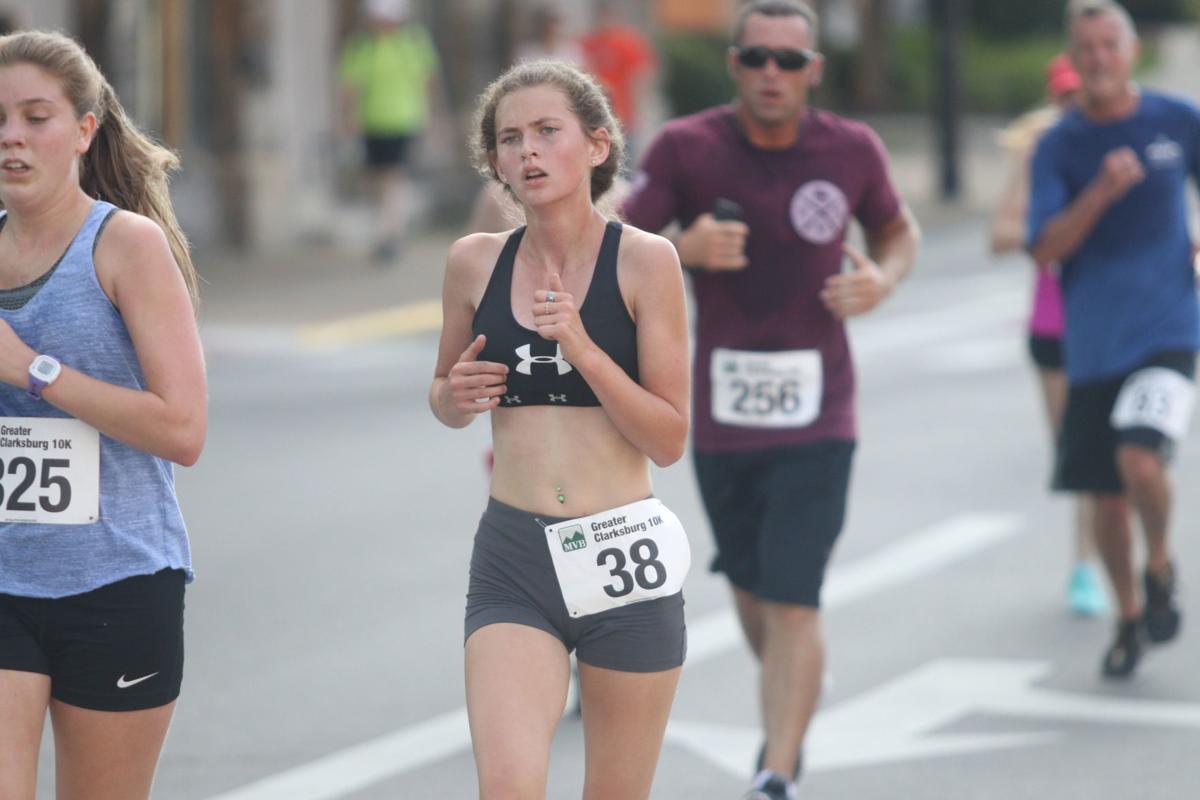
CLARKSBURG — There is no shortage of running medals events on tap in North Central West Virginia.
That includes Derek Hotsinpiller Fallen Stars Memorial 5K on June 9, the Cecil Jarvis Greater Clarksburg 10K, the 2-mile and Kids K events on June 16 and the WVU Medicine Morgantown Marathon currently scheduled for September.
“They’re definitely growing. There’s a lot more 5K (events) available around here,” said Ashley McClain, physical therapist at United Rehab in Bridgeport. “They’re available all around.”
Running events can be beneficial to overall health, because runners are getting the American Heart Association-recommended 150 minutes of cardio per week. Also, training for a running event can provide the motivation to get that recommended amount of cardio exercise, she said.
“It gives you a goal to work for and, once you achieve it, it’s the satisfaction of doing that,” McClain said.
Many who start training for 5K running medals events end up doing half-marathons and marathons later on, she said.
“You kind of build on it once you accomplish one distance,” McClain said.
The positive effects of running medals events can unravel quickly if appropriate measures are not taken to avoid injuries, however. For this, adequate training is key.

“I think the main thing is trying to increase your mileage too soon,” McClain said. “Don’t try to increase your mileage more than 10 percent a week. I think people can get real motivated, which is great, but I think if you try to bulk up on mileage or increase your frequency too fast, you’re going to definitely get injuries.”
Runners who increase mileage or intensity by more than 10 percent per week risk a number of painful conditions, including stress fractures, iliotibial band syndrome, runner’s knee, shin splints, jumper’s knee and bursitis, among other conditions, she said.
“When I ran a marathon, it was an 18-week (training) program,” McClain said. “In a marathon, you’re going to be putting more stress on your body versus a half-marathon, versus a 5K, but if you train properly, put in the mileage and you do it safely, then you should be OK,” McClain said.
For people who are just starting out, “listen to your body,” she said.
That might mean starting low with a quarter-mile run in the first week, and increasing that distance by 10 percent each week from there, she said.
For new runners, Harrison County YMCA CEO Laura McMahon said the focus should be on building endurance rather than speed.
“It’s all about endurance, distance running. You’re not worried about necessarily the sprint or the quick burst of energy. You’re looking to just finish,” she said.
“You don’t want to push yourself too hard, but push yourself a little more each time. Then, set goals for yourself, as well,” McMahon said.
Spending some days cross-training by swimming laps, bicycling or performing another cardio activity can help break the monotony of running. Listening to music can also curb boredom, she said.
Including weight training in an exercise schedule is also important, McMahon said.
Getting appropriate nutrition will also help improve performance and health, she said.
McClain also recommended taking time before and after running to stretch one’s muscles. Doing so will also help prevent injuries, she said.
“Icing after (a run) is a good habit to get into. Even if you don’t have an injury, that can help the post-effects of exercise,” McClain said.